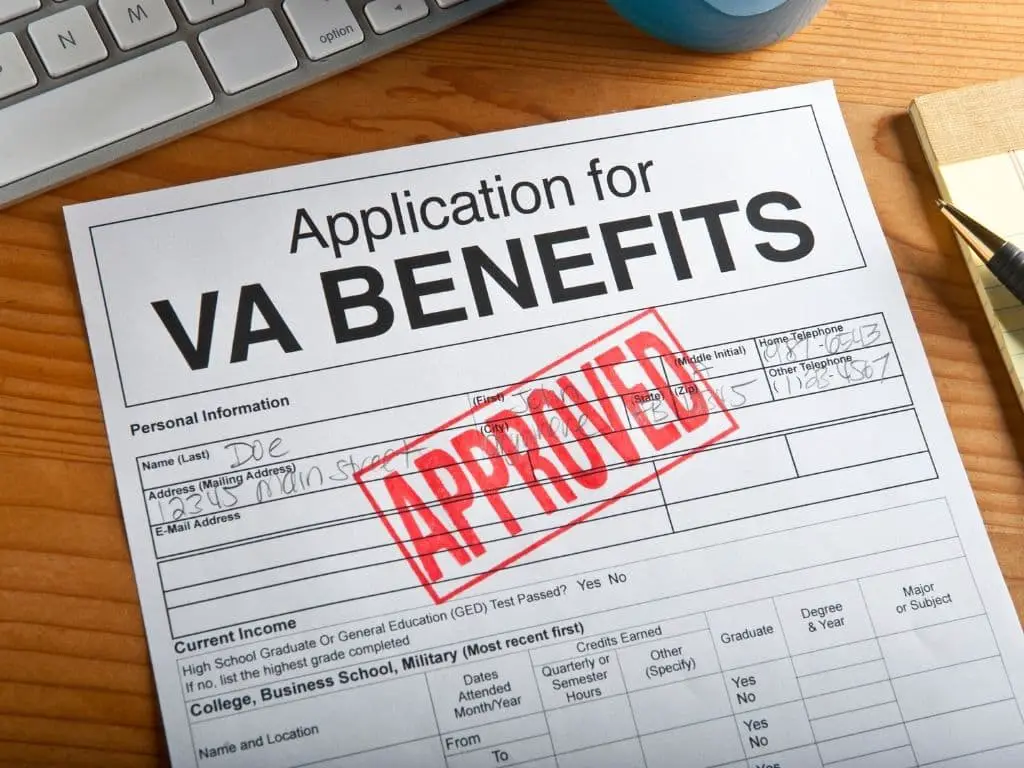Figuring out whether or not your VA benefits are taxable can be confusing. The taxes on your VA benefits can be confusing and overwhelming.
Our blog post breaks down the tax laws for VA benefits so that you can understand how much of your benefit is taxable.
Are VA benefits taxable? VA benefits are not taxable. The United States Department of Veterans Affairs honors and serves you in keeping with President Lincoln’s pledge to “care for him who has borne the battle, as well as his widow and orphan.”

Are VA Benefits Taxable?
Military retirement pay calculated according to age or length of service is taxable income for federal income tax purposes. Military disability retirement pay and Veterans’ benefits, such as service-connected disability pension payments, may be excluded from taxable income to a significant extent.
Veterans’ benefits are not taxable under federal law. The following payments to Veterans or their families are tax-free:
- Payment for Education, training, and subsistence allowances
- Disability benefits and pension payments for disabilities given either to Veterans or their Families
- Compensation made for homes designed for wheelchair living
- Grants for motor vehicles for Veterans who lose their sight or use of their limbs
- Veterans’ insurance money and dividends paid out to Veterans or their beneficiaries, such as the proceeds of a Veteran’s endowment policy paid in advance of death
- The interest on insurance dividends left in the VA’s bank account
- Dependent-care assistance programs provide several advantages.
- A death gratuity is paid to a surviving spouse of a member of the Armed Forces who dies after September 10, 2001.
- Payments made through the compensated work therapy program
- A payment from a state or political subdivision for qualifying service in a combat zone.
Calculating Taxes On VA Benefits
VA benefits are not taxable. They are simply the money that the VA gives you to live off of after your military service. This money is not taxed by any federal, state, or local government.
How To File VA Benefits On Your Federal Taxes?
The US government does not tax income from VA benefits, which means that you won’t have to pay taxes on them!
State Taxes On VA Benefits
VA benefits are not taxed by any federal, state, or local government.
Retroactive VA Disability Determination
If you retire from the military based on years of service and later receive a retroactive service-connected disability rating by the VA, your retirement pay is not taxable up to the amount of the VA disability benefits you would have been eligible to collect. You may claim a refund on any taxes paid on the excludable amount using an amended Form 1040
If you acquire a lump-sum disability severance payment and subsequently qualify for VA benefits, you may exclude 100% of any severance pay from your income. However, any lump-sum readjustment or other non-disability severance payment you receive on your discharge from active duty must be included in your income, even if you are later given a retroactive disabled rating by the VA.
A Special Statute Of Limitations
The statute of limitations for claims of retroactive disability is typically three years after the date a tax return was submitted. However, in the case of a retroactive service-connected disability rating determination being made, the statute of limitations is prolonged by a year from the date of determination for claims for credit or refund filed after June 17, 2008. This unique provision does not apply to any tax year that began more than 5 years before the date of decision.
Do All Veterans Get VA Benefits?
Every enrolled Veteran is entitled to the Department of Veterans Affairs (VA’s) comprehensive Medical Benefits Package, which includes preventative, primary, and specialty care, as well as diagnostic testing.
A Veteran who is enrolled in the VA health care system automatically qualifies for prescription drug coverage, durable medical equipment (DME) benefits, and “Meaningful Use” incentive payments.
Conclusion
In the United States, VA benefits are not taxable. The Department of Veterans Affairs honors and serves you in keeping with President Lincoln’s pledge to “care for him who has borne the battle, as well as his widow and orphan.” If your income is low enough to qualify for these benefits, don’t worry about them being taxed- they won’t be!